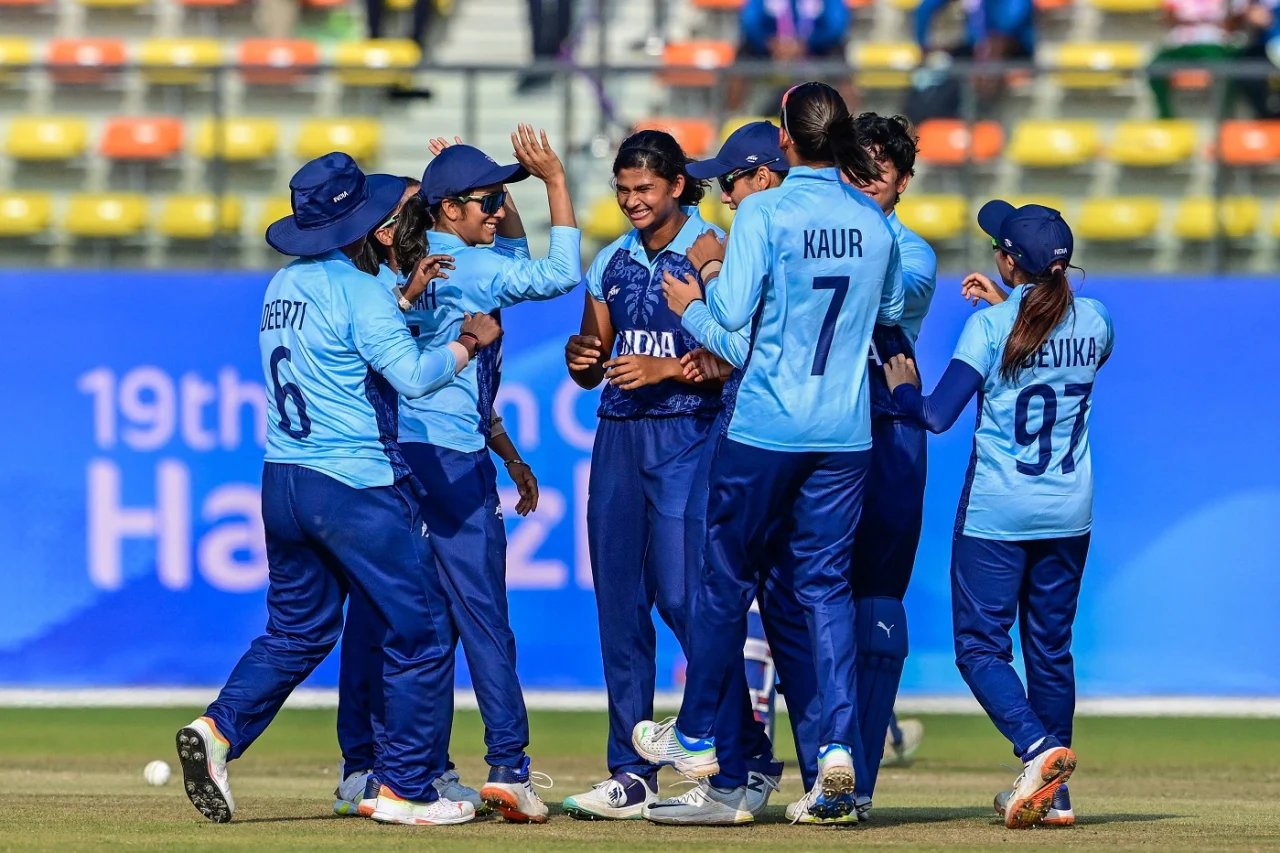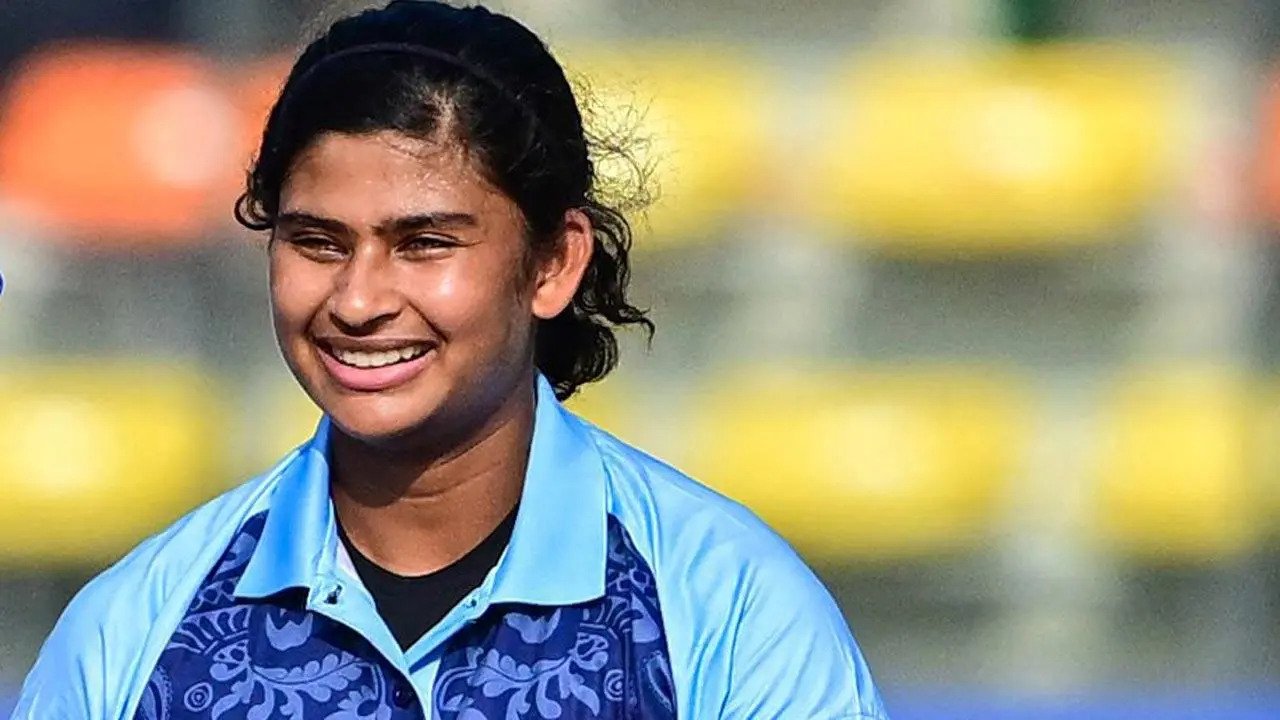(October 1, 2023) Clad in Indian jerseys, the women in blue entered the cricket pitch at Hangzhou with the promise of winning the game against Sri Lanka. And staying true to their vow, the Indian Women’s cricket team won a historic gold medal in cricket at the Asian Games 2023. While the team did everything to clinch the gold, it was Titas Sadhu who orchestrated a dream start by picking up three wickets in four overs and giving only six runs. The 18-year-old became a star for India at the Asian Games 2023 with her pace and swing bowling, helping India clinch its very first gold medal in cricket. “It was always a dream to play for the country but I had never expected that it would come true so soon,” she told ESPN in an interview. It was in the semi-finals against Bangladesh that Titas made her international debut.
Can’t take my eyes off the GOLD!🥇
Proud to play my part in our team’s journey to this triumph! 🇮🇳✨#asiangames2023 pic.twitter.com/okBfHnXWqm
— Titas Sadhu (@titas_sadhu) September 27, 2023
Born in the Chinsurah district of West Bengal in 2004, Titas was always interested in sports, thanks to her father, who was an athlete. But cricket wasn’t her first love, instead, she had her eyes on swimming. So much so that she enrolled in Chinsurah Rajendra Smriti Sangha Academy on the outskirts of Kolkata to hone her skills in the sport. However, over the years, she developed an interest in cricket and started playing the sport at the age of 13. “It wasn’t for my love of cricket that I joined it. Instead, I started playing it as a fun activity since I would often watch the academy matches and also help them. But when I started performing well, my interest in the sport started growing, and that’s how cricket happened to me,” she added. It was her father who was the wind beneath her wings, always encouraging and motivating her. “It’s very important to have someone at a young age who pushes you, despite knowing your limits. I’m so glad that my dad kept pushing me to do better. He is like a friend to me.”

However, she had to wait for her chance to break into the West Bengal cricket team. While she failed to clear the trials in the first go, Class 10th board exams forced her to miss out on the 2018-19 season. “Though it was heartbreaking I realised that I wanted to be a part of the U19 team. That’s when I started getting more invested in the game.”
It was after Covid-19 that Titas joined the senior Bengal squad in the 2020-21 season. She was only 16 when Bengal women’s coach Shib Shankar Paul saw her at one of the training sessions and realised her potential. He soon picked her up for three practice sessions. However, in the first few matches, Titas was unable to prove herself on the pitch and had to be dropped.
However, she was determined to bounce back and kept performing well in the inter-district matches and the Cricket Association of Bengal-affiliated tournaments. In 2022, she played in the Women’s T20 tournament and ended up taking seven wickets in five matches, thus cementing her position in the senior squad. Talking about the Women’s Premiere League, she said, “You get to play with the players from other countries, and you find that their perspective on cricket and life is very different from ours. And it also gives us the nudge to incorporate those perspectives in our game.”


But it’s with the Asian Games 2023 finals against Sri Lanka that Titas proved her mettle as a cricketer. “It was special as we don’t get to clinch a gold at the Asian Games every time, and representing India as an athlete was a proud moment. I literally had goosebumps standing on the podium receiving the medal,” she said.
- Follow Titas Sadhu on X




